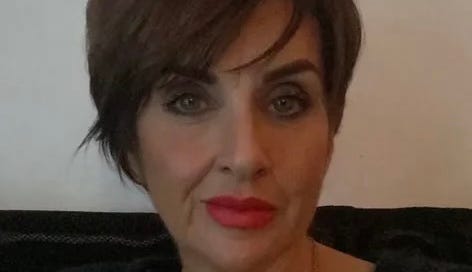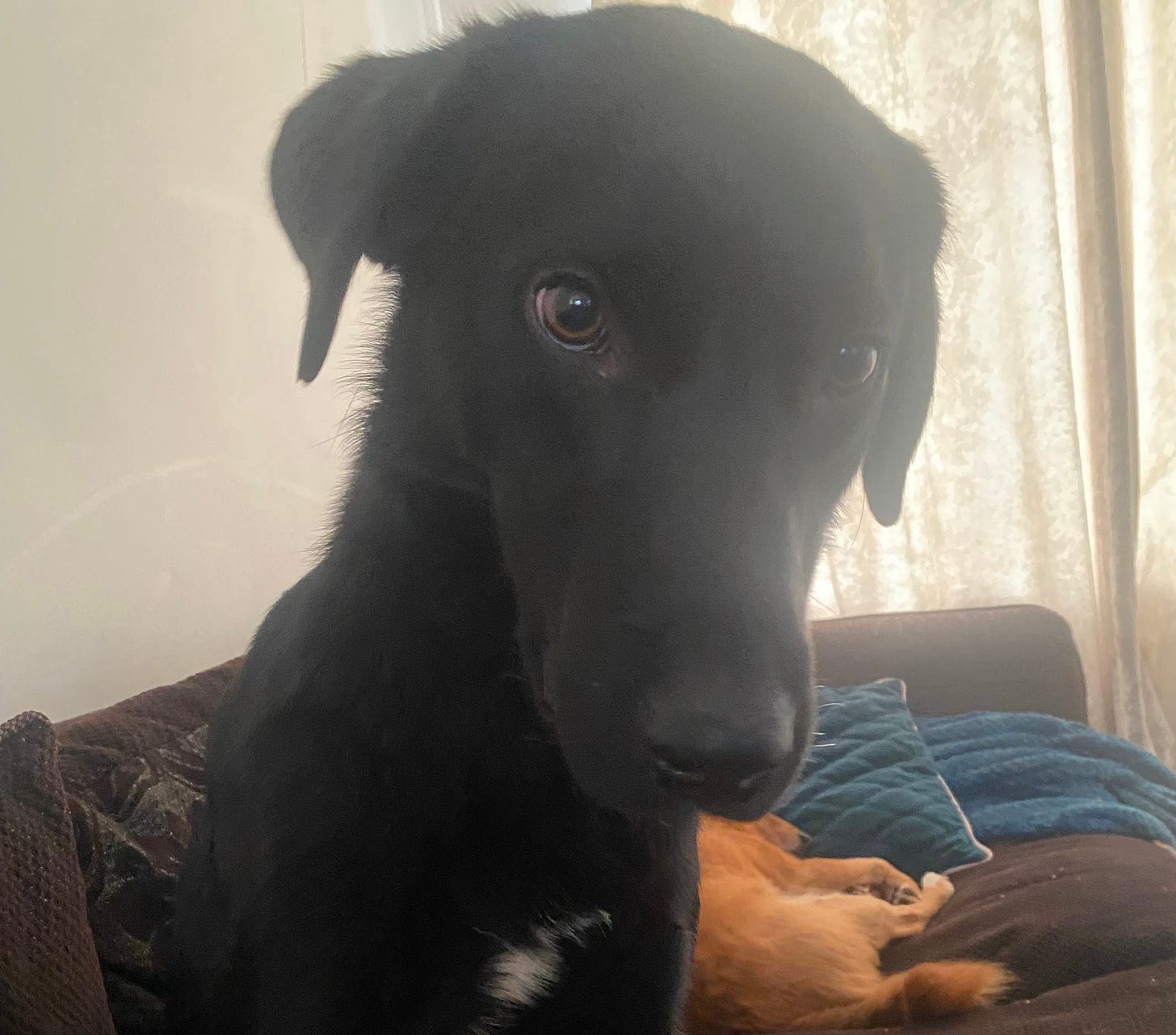The Auti Peri Q&A: Nicola Bal
"We need support and understanding – also as mothers, the impact is astronomical. It has been an entirely devastating transition for me."
Hi, I’m Sam (she/her). A late diagnosed neurodivergent woman, a tenacious midlife struggler, and an advocate for people in autistic perimenopause here at The Autistic Perimenopause: A Temporary Regression AKA The Auti Peri.
I am delighted to be the host of The Auti Peri Q&A Series!
In this series, I host a Q&A interview with a fellow autistic person about their experience of the menopause transition.
Everyone’s experience of the autistic menopausal transition is different. I aim to elevate the voices, lived experiences and reflections of autistic people’s menopausal transition.
Autistic perimenopause is a highly individual, dynamic and sometimes prolonged life stage caused by reproductive hormonal fluctuations. As autistics can be highly sensitive to bodily and environemntal, we may experience fluctuations as physical, psychological and cognitive symptoms.
Academic research into auti peri is in it’s early stages, yet it is a matter or urgency that we bust the social taboo and get used to talking about this.
Today’s guest is Nicola Bal (she/her), creator of More Than Words here on Substack: “Welcome to Menopause, Me and ADHD. My personal space to share thoughts in words.”
Nicola lives in Livingston, Scotland.
🎧 Nicola has kindly recorded an audio recording to share her story with us in her own voice. Just a heads up to fellow deep empaths: Nicola’s story is a raw and heartwrenching listen, but there is a comical ending that provides some light relief when she drops her notes and runs full pelt to stop one year old puppy Zeus (black Labrador/CollieX in the photo above) eating something he shouldn’t have been! 🐶
What does “autistic perimenopause” mean to you?
I am not actually sure when perimenopause symptoms started to change how I was experiencing life – the only way that I can describe what happened, is to say that I 90% stopped functioning and my physical health was impacted massively.
The mental health impact was what lead to me discovering AuDHD, and getting assessed. It has been an extremely difficult few years, with health concerns now being referred to specialist teams.
I have found it difficult to express what I am experiencing, and for any of it to be fully heard. Now I am more hopeful.
What does autistic perimenopause mean to you?
In all honesty, I’m still not sure. What I do know is, that I didn’t even understand perimenopause, in fact, I hadn’t even heard of it. I feel like I was not prepared for the impact it was about to have on my life.
To add, that, I did not fully understand anything about the female autistic experiences. Putting the two together was an implosion.
When did your autistic peri symptoms start and what are they?
I find it difficult to pinpoint when the peri symptoms started as I was seeing the GP for various concerns and was diagnosed with fibromyalgia around 7 years ago.
I had also just undergone therapy, and was still unpacking a bunch of darkness I'd buried deep in my trunk, pushed so far down that it could barely be reached.
My kids were 15, 4, 2 – I was drowning. The frantic paddle underneath, that used to present a perfectly gliding swan, had risen to the surface – feathers ruffled in disarray, could no longer stay afloat.
Sinking.
Drowning.
So around 3 years ago, aged 45, I spoke to the GP about the rage that seemed to jump into my body, out of the shadows, so quickly – in and out, leaving carnage behind. The night sweats that were leaving full body imprint soaked bed sheets, while I froze changing my pyjamas. Sex was no longer my friend.
What happened when you presented with autistic perimenopause to a healthcare professional?
As I was still unaware of my autistic struggles – just fully believing that there was something completely broken within me.
I was struggling to take care of myself, while I scraped through the days trying to still be a mum, although I felt like the shittiest mum, and didn’t see the point in being around if I was not being the ‘best’ mum – it was a very difficult time.
The GP prescribed me HRT, which was such a relief when the monster inside didn’t feel the need to come out each day, we saw her less and less as the weeks went by – I was so happy to finally be taking a medication that actually alleviated the most troubling symptoms.
When I did actually ask the GP about an autism assessment, he laughed and said I was definitly not autistic.
What has your treatment protocol been in managing your autistic perimenopause?
I began HRT and started reducing other meds, such as anxiety and pain relief.
I had to almost completely stop drinking alcohol, as my body literally felt like it was poison – everything was worse after alcohol. It had always been my way to fit in socially, to drink gave me confidence, I felt like a different me – so to give it up was difficult, in that I didn’t really know who I was without it, but I just knew I felt better, my body felt better without it.
I began to meditate again. Learned that I’d been holding my breath and didn’t know how to breath in a natural rhythm, so I worked on that.
I let my introvert take control and stayed home, spending time trying to understand what was happening to me, and how I could prevent it from completely ending my life.
How has your everyday life been impacted by autistic perimenopause?
Nothing has been left untouched.
It has all been gently touched, lifted and thrown through the air – left to lie where they land – untended.
I don’t work, having been self employed I could no longer do my job, through physical symptoms. Jobs at home became harder to do and so became neglected, while I tried not to neglect my children – although in my mind, I was convinced I was failing them.
Reading became hard work and books were no longer where I ran when I needed escape.
I struggled to write – my way of understanding and communicating – I could no longer do it comfortably, if at all.
My husband and I are riding the waves, but oh my gosh they are knocking us in ways I couldn’t have imagined for us.
Are there things that have made your menopause transition especially difficult for you as an autistic person?
Toleration levels. When asked a question that involves me having to think or remember, I become instantly annoyed – angry in fact.
I feel like I'm completely intolerant of people.
Also people see the masking me almost 100% of the time, so it can be difficult to access support either professionally or peer, as I appear to be ok (at least I think I appear ok). As I have had less ability to mask (like zero – can't do it for periods longer than a minute) - this can also have people assuming I’m depressed and socially withdrawn – argh, it’s so boring!
Can’t they accept that closing the curtains for sensory issues does not equal depression?
Are there things that could have made your transition easier as an autistic person?
I’m not sure. Except the obvious – be more prepared, informed, knew what the fuck was coming.
What supports, resources and services are available to people experiencing autistic perimenopause where you live?
SWAN – is a group who have regular meet ups for autistic women, although I have not used this support.
What kind of services, resources or supports would you find most helpful?
Online chat groups, to air health issues and relationship issues – a place to vent.
More training given to all healthcare professionals regarding how specifically hormonal fluctuations are impacting our emotional regulation.
What is the easiest way for you to access information about autistic menopause?
Online – usually peer socials, recommending legitimate useful reads, with reliable researched information – but mostly I get the most helpful information from lived experiences of fellow women going through their experience.
What would you wish for all people to know about autistic perimenopause?
That it can be debilitating and extremely difficult for us to even understand what we are experiencing – especially if you are a high masking undiagnosed/late diagnosed autist.
We need support and understanding – also as mothers, the impact is astronomical.
It has been an entirely devastating transition for me.
Is there anything else you’d like to share regarding your autistic experience of menopause?
The regression in my abilities, specifically around the social requirements and communication difficulties. I had managed to mask and endure – making and receiving phone calls being one of the simplest every day things, that can now completely take me out to the point that I just can’t do it.
I hope you have enjoyed this Q&A. If you would like to be featured as part of this series, please message me. I’d love to share your story!









So happy to see you and Nicola team up!!! I haven't seen her around Substack lately and missed her. Just leaving this comment to say this now and I'll catch up on the post later. Won't miss this one!